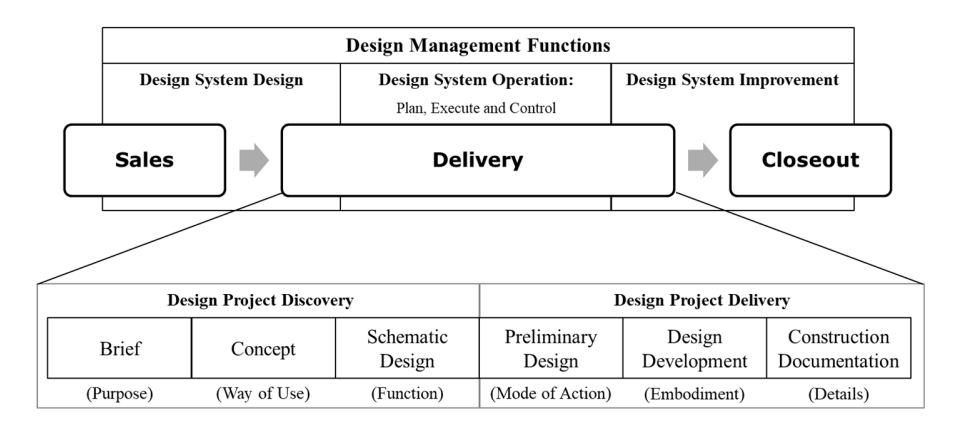An Investigation into the Effectiveness of Design Management in Building Construction Delivery in the UK (2013)
Design Management in Building Construction Dissertation – In recent times, the construction industry has been under pressure to improve efficiency in terms of quality improvement, timely delivery and maintaining budget cost. The need for quality design solutions and effective processes has also spurred significant emphasis in the industry (Latham 1994, Egan 1998). The reflection of this in practice has however been a huge challenge, nevertheless we cannot continue with the ‘business as usual’ mindset.
Common sources of problems in construction projects include: inadequacy of design process management, escalated by inadequate briefing, technical incompetence amongst designers and inadequate communication. These problems are more significant than the ones ascribed to substandard workmanship and site management, which follows from late, incomplete or uncoordinated design information and poor build-ability. The most determinant decisions are taken at the start of any project. This is the time for conceptual innovation, creativity, allocation of resources, definitions and a period laden with uncertainties.
The informed advice of relevant professionals is crucial to good decision making at this stage. Most of the information about the potential of the project lies within the design professionals who are considered the key stakeholders in this phase. At this design phase which is most associated with architects and engineers, concepts are formulated to represent the end product that achieves the objectives of the design. However, disparity is commonly noted between these concepts representation and the design requirement and within the untidy circumstances found in reality. This is due to variety of factors which makes projects complex and unique.
Traditional approaches to design management are inadequate and have evolved more slowly than the industry and society as a whole. They also posited that the institutionalisation of project role has deterred professionals from developing more appropriate skills of managing the integration and coordination of the fragmented process. On the other hand, management by professional with non-design background who may lack insight to the far reaching implication of their decisions have further compounded the ineffectiveness at this phase.
This dissertation explores the effectiveness of design management in building construction projects in the UK and offers the opportunity to determine the effectiveness of methodology in practice while contributing to the body of knowledge available to project managers in the successful delivery of projects. It is a fact that construction industry has been faced with the responsibility to improve efficiency. There are numerous reports and government initiatives to attest to this issue of ineffectiveness in the industry (Egan and Latham).
The bulk of the problems have been laid at the foot of design, in other words, studies have revealed the most of the failures have been attributed to design inadequacies, lack of innovation and general problems in the strategic design phase in the project life cycle. This dissertation set out to explore design management practice in other to establish its effectiveness in building project delivery in the UK. The results of this study will be relevant to the clients of construction industry, the construction project team, the academia and especially design managers in practice, aspiring design managers and it will contribute to the body of knowledge in the field of design management. The research will analyse design process, the factors affecting design management, problems of design management in practice and the methodologies of design management.
The aim of this research is to determine the standard frame work design management practitioners adhere to in practice, if there are any in particular and to determine its effectiveness in the building project delivery in the UK. This evaluation will be supported by review of literature in the subject area and data will be obtained from identified practices in the UK for the analysis. In order to achieve the set aim of this research, the following objectives will have to be achieved;
- To obtain empirical data from practicing professionals in other to facilitate the awareness level and perception of DM within the industry in the UK
- To evaluate current practice in other to identify if there is a standard framework or model adopted to manage design and its effectiveness
- To identify some pressing and recurring problems of DM in practice
- To identify and investigate some of the different factors that contributes to effectiveness in design management
- 18,000 words – 74 pages in length
- Excellent use of literature
- Good analysis of subject area
- Well written throughout
- Includes interview questions
- Ideal for construction management students
1: Introduction
Background and Rationale
Relevance of the Dissertation
Research Hypothesis
Aim and Objectives
Outline Research Methodology
Dissertation Structure
2: Literature Review
The concept of Design Management in Building Construction
Can Design Be Managed?
Who Should Manage Design In Building Construction Project?
Methodology of Design
The Design Process
RIBA Plan of Work
Factors Affecting Design Management Effectiveness
Design Brief and Briefing
Communication between Team Members
Integration and Management of Project Information
Programming
Tools and Techniques of Managing Design
Procurement Route
3: Research Methodology and Data Collection Approach
Research Approach
Quantitative and Qualitative Research
The Mixed Approach
Choice of Methodology
Data Collection Approach
Postal Questionnaire
Case Study
Personal Interviews
Interviewee Selection
Findings from Qualitative Methodology using Semi-Structured Interviews
Reliability and Validity
4: Data Analysis and Discussion
Discussion Structure
First Round of Interviews
General Awareness and Perception of Design Management and Design Process
Generic design process problems in practice
Summary of Findings
Second Round of Interviews
Methodology and Techniques in Design Management
Factors Affecting DM and Effectiveness in Practice
5: Analysis of Results and Objectives
Analysis of Objectives
6: Conclusions and Recommendation
Dissertation Conclusion
Limitations of the Study
Reflection
Recommendation
Reference
Appendix
Interview Questions

